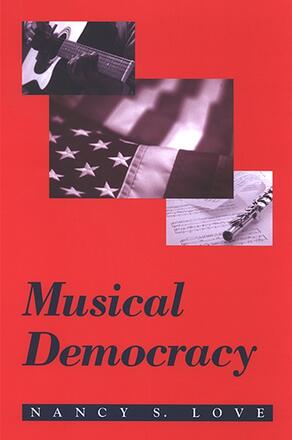
Musical Democracy
Alternative formats available from:
How music functions as a metaphor and model for democracy.
Description
Musical metaphors abound in political theory and music often accompanies political movements, yet music is seldom regarded as political communication. In this groundbreaking book, Nancy S. Love explores how music functions as metaphor and model for democracy in the work of political theorists and activist musicians. She examines deliberative democratic theorists—Jürgen Habermas and John Rawls—who employ musical metaphors to express the sense of justice that animates their discourse ideals. These metaphors also invoke embodied voices that enter their public discourse only in translation, as rational arguments for legal rights. Love posits that the music of activists from the feminist and civil rights movements—Holly Near and Bernice Johnson Reagon—engages deeper, more fluid energies of civil society by modeling a democratic conversation toward which deliberative democrats' metaphors merely suggest. To omit movement music from politics is, Love argues, to refuse the challenges it poses to modern, rational, secular, Western democracy. In conclusion, Musical Democracy proposes that a more radical—and more musical—democracy would embrace the spirit of humanity which moves a politics dedicated to the pursuit of justice.
Nancy S. Love is Associate Professor of Political Science and Communication Arts and Sciences at Penn State at University Park. She is the author of Marx, Nietzsche, and Modernity and Understanding Dogmas and Dreams: A Text, Second Edition, and the editor of Dogmas and Dreams: A Reader in Modern Political Ideologies, Third Edition.
Reviews
"As a person who has studied both translation and international relations, this book to me was an academically revealing masterpiece, combining two very different fields in the most inspiring way. Just open your ears and listen because music is indeed everywhere!" — Valentina Koumoulou, Greater European Journal